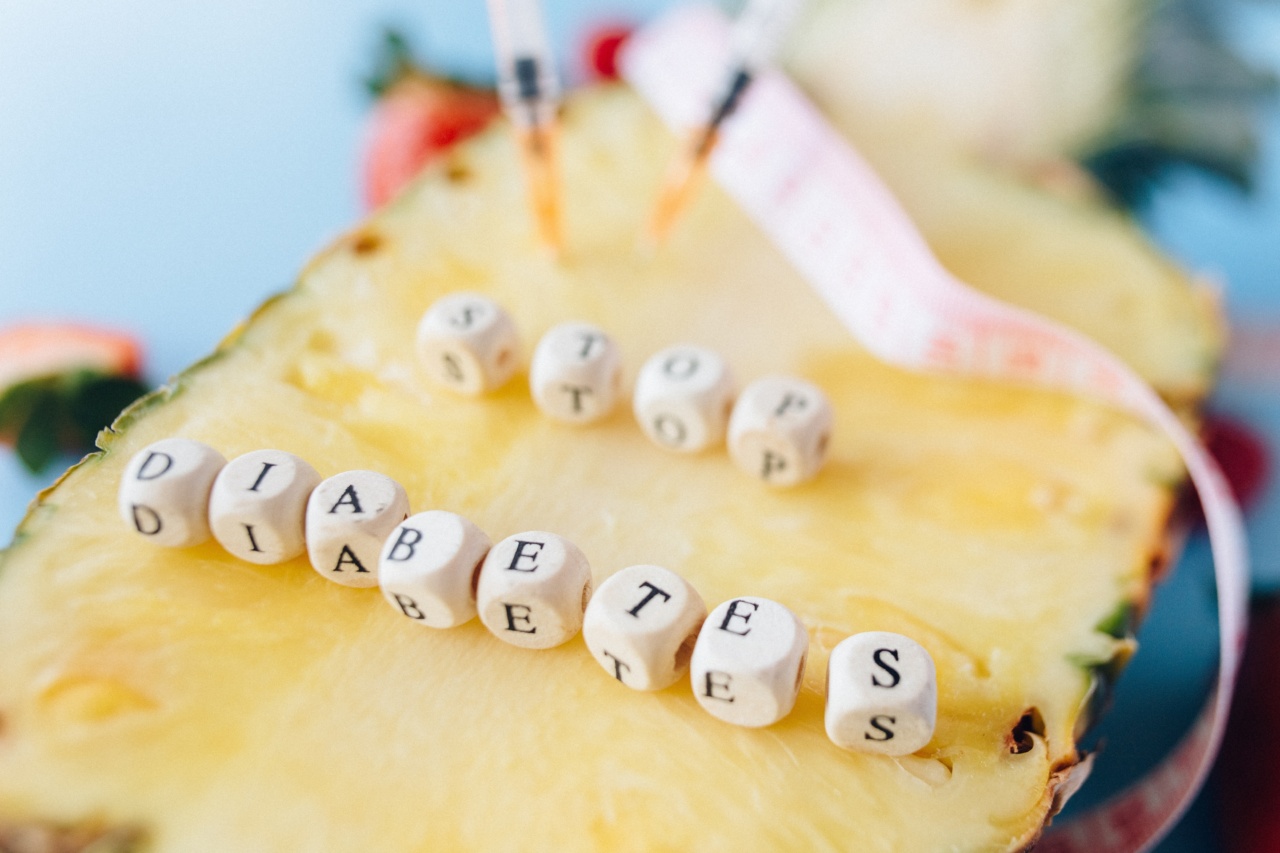Diabetes is a chronic health condition that affects millions of people worldwide. It is characterized by high blood sugar levels due to the body’s inability to produce or properly use insulin.
If left uncontrolled, diabetes can lead to various complications, including heart disease, kidney failure, and nerve damage.
Understanding Diabetes
There are three main types of diabetes: type 1, type 2, and gestational diabetes. Type 1 diabetes is an autoimmune disease wherein the body attacks its own insulin-producing cells.
Type 2 diabetes occurs when the body becomes insulin resistant or does not produce enough insulin. Gestational diabetes develops during pregnancy and usually disappears after childbirth.
Self-Regulation and Diabetes
While diabetes is a chronic condition with no known cure, it can be effectively managed and controlled through self-regulation.
Self-regulation involves adopting lifestyle changes, monitoring blood sugar levels, and following a treatment plan prescribed by healthcare professionals.
Monitoring Blood Sugar Levels
Regular monitoring of blood sugar levels is crucial for diabetes management. This can be done using a glucose monitoring device, which measures the amount of sugar in the blood.
By monitoring blood sugar levels, individuals with diabetes can make informed decisions about their diets, physical activity, and medication.
Adopting a Healthy Diet
A healthy diet plays a vital role in managing diabetes. It is important to include a variety of nutrient-dense foods such as fruits, vegetables, whole grains, lean proteins, and healthy fats.
It is also essential to limit the consumption of sugary foods and beverages, processed foods, and foods high in saturated and trans fats.
Regular Exercise
Physical activity is beneficial for everyone, but it holds particular importance for individuals with diabetes.
Regular exercise helps to control blood sugar levels, improve insulin sensitivity, maintain a healthy weight, and reduce the risk of cardiovascular complications. Engaging in activities such as walking, jogging, swimming, or cycling for at least 150 minutes per week can significantly contribute to diabetes management.
Medication and Insulin
Depending on the type and severity of diabetes, medication and insulin may be necessary to regulate blood sugar levels.
Oral medications and injectable insulin may be prescribed by healthcare professionals to help the body effectively utilize insulin or stimulate insulin production. It is crucial to follow the prescribed dosage and timing instructions to maintain optimal blood sugar control.
Stress Management and Restful Sleep
Stress can affect blood sugar levels, so it is important for individuals with diabetes to manage stress effectively.
Engaging in stress-reducing activities such as meditation, deep breathing exercises, yoga, or hobbies can help regulate blood sugar levels. Additionally, ensuring adequate and quality sleep is important for overall health and diabetes management.
Regular Doctor Visits
Regular visits to healthcare professionals are an essential part of diabetes management. Doctors can monitor the progress, adjust the treatment plan as necessary, and provide guidance on self-regulation strategies.
It is important to discuss any concerns, symptoms, or changes experienced with healthcare professionals.
Support and Education
Living with diabetes can be challenging, but individuals with the condition are not alone. Support groups, educational resources, and diabetes management programs can provide valuable information, support, and tools for effective self-regulation.
Connecting with others who have diabetes can also provide a sense of community and shared experiences.
Conclusion
Managing and controlling diabetes requires self-regulation and lifestyle changes.
By monitoring blood sugar levels, adopting a healthy diet, engaging in regular exercise, taking prescribed medication, managing stress, and seeking support, individuals with diabetes can effectively manage their condition and lead a healthier life. Remember, it is important to consult with healthcare professionals for tailored advice and guidance.































